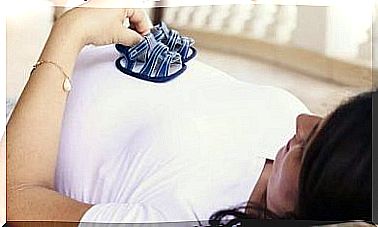Organ Donation Saves Children’s Lives

Organ donation, for the family of the child waiting for a transplant, is the illusion of having a new opportunity. However, the number of donor applications is quite low; many fear the removal of the organ from their body.
Others do not know the process they must follow to take this altruistic step and save lives. For this reason, the following information about organ donation is vital.
What is organ donation?
It is the removal of organs, cells and tissues from a person’s body in order to perform a transplant. People of different ages can be donors; however, for transplantation in a child, the donor must be compatible in size. When it comes to a kidney transplant it is necessary to do studies to determine the compatibility.
Although there are donations from living people, most of it comes from the deceased. Of course, even if the donor is in intensive care, the doctors will do what they can to save his life. In fact, donation and transplant doctors should not interfere with intensive care physicians.
- The most commonly transplanted organs are the lung, heart, kidney, liver, pancreas, and intestines.
- The tissues that can be transplanted are: the corneas, the skin, the cardiovascular valves and the bones. Regarding cells, bone marrow transplantation is quite common in children with cancer.
Why donate an organ to a child?
Statistics show that, every day, an average of 20 people die waiting for an organ. Even so, thousands of children are still waiting for organ transplants to stay alive. Each transplant that is performed is possible through these selfless “gifts”; therefore, it is necessary to become aware.

Making the decision to carry out this act of solidarity can help many. Since a donor can save not only the life of a child, but several. Through tissue donation, up to 50 lives can be improved, and with organ donation 8 children could be saved.
Additionally, organ donation has helped many parents cope with the loss of a child. While it will always be difficult, seeing that they are helping others will help you take the loss more positively.
Another reason to donate organs is to think about how much you can benefit others. Think: if you had to get a donor for a family member or friend, would you want to get it as soon as possible? Thinking in this way has helped families become involved in saving a child’s life.
Parents and pediatric donation
Pediatric donation is not an easy subject for donor parents. Organ donation for a child or baby must be from another child of the same life span. Then, since the child is in the minority, it is the parents or legal guardian who authorize the donation.
In some places, teens can sign up as organ donors. However, in most cases, it is the parents who must give permission.
It is not easy for parents to make this decision. Losing your child is very painful; therefore, donating in the face of such a fatality can cost them.
In these cases, pediatricians should be familiar with the ethics and legal aspects of organ donation in their country. Although it will be a family decision, specialists can always give their point of view and provide information.

Organs that children need most often
The transplants that children usually need vary according to age:
- 1-year- olds: usually need a heart, liver, or bowel transplant.
- Ages 2 to 10 : Children in this life span are often waiting for a kidney, bone marrow, heart, or liver transplant.
- Adolescence: a large part of adolescents who require a liver transplant.
The number of those who wait for these transplants is quite high. Therefore, organ donation is an option that should be carefully considered. An organ can come to mean the difference between life and death.










